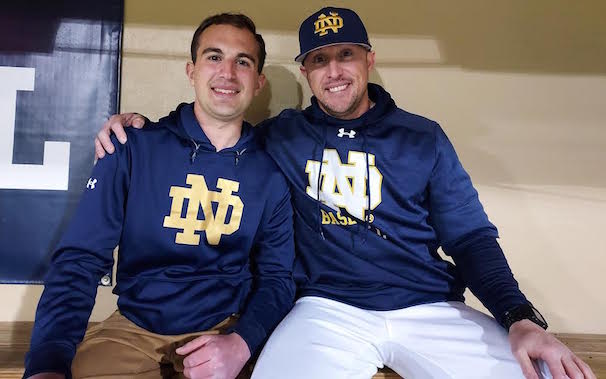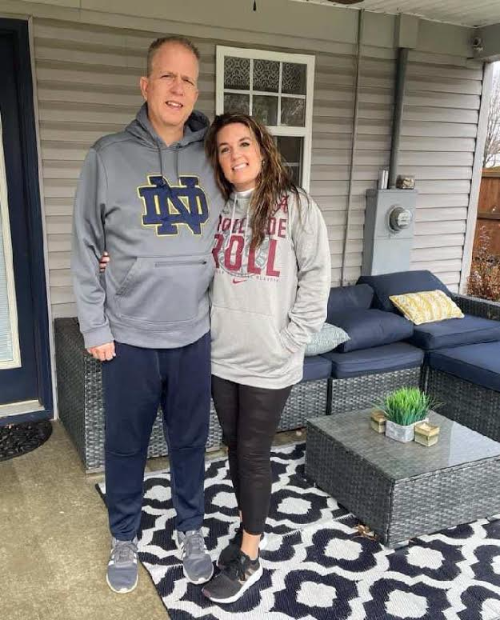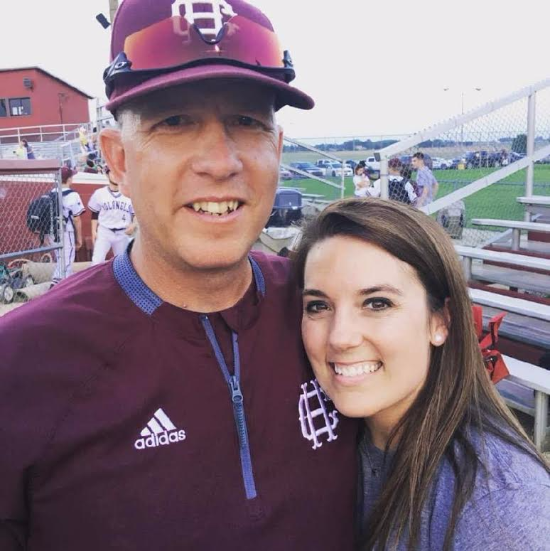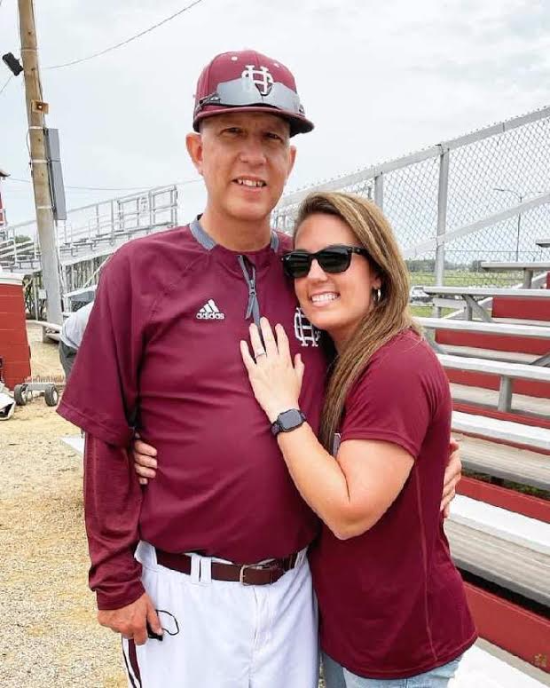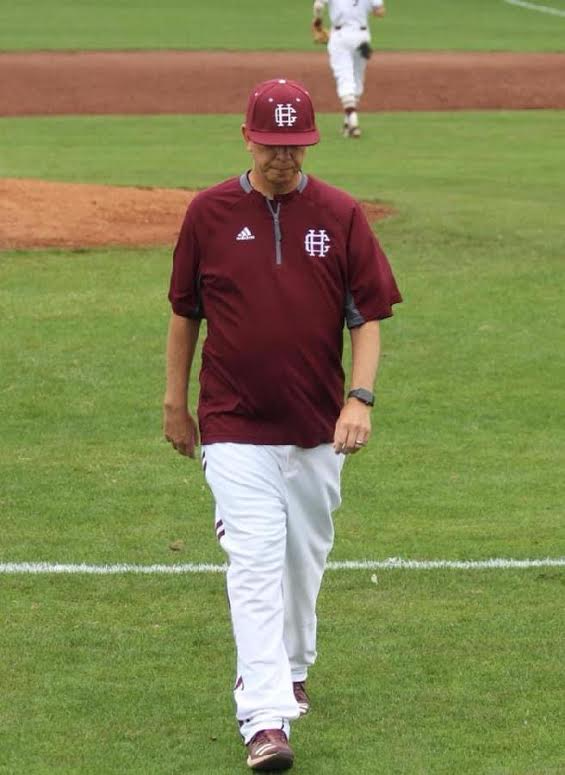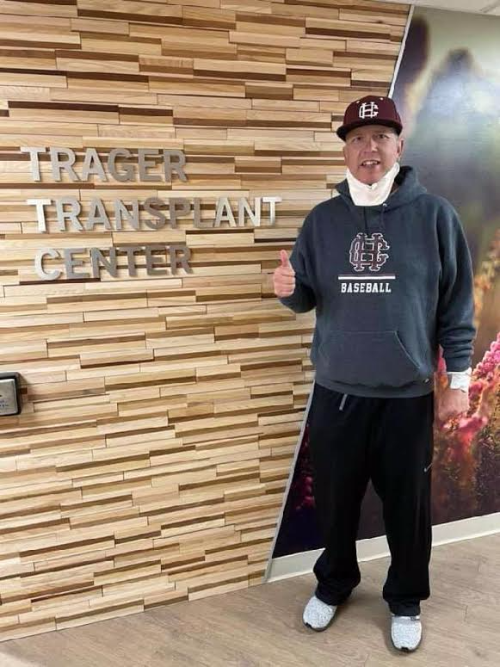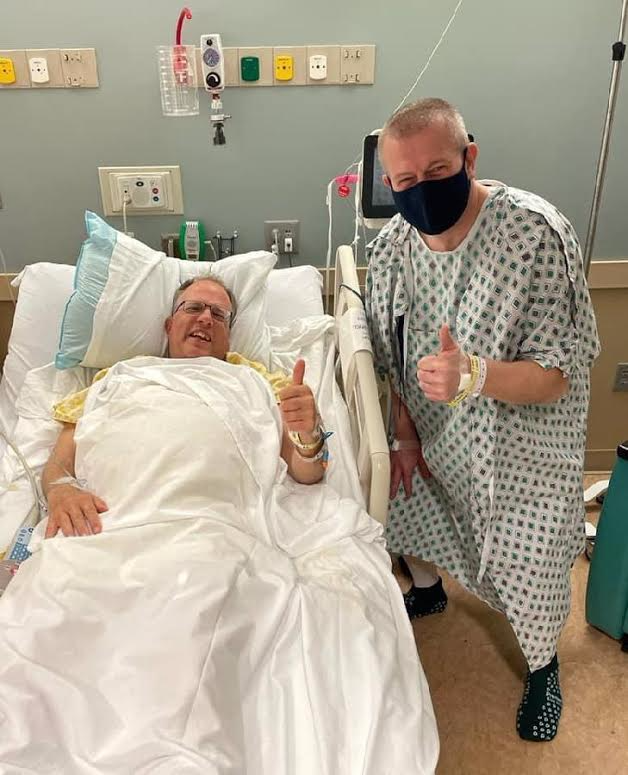
BY STEVE KRAH
The University of Notre Dame moved to 9-2 on the 2024 college baseball season with an 11-2 win Tuesday, March 5 against Purdue University in the home opener at Frank Eck Stadium for the Fighting Irish.
Sophomore Estevan Moreno slugged three home runs for ND — the third time he’s done that during his career.
After the contests, two Irish staffers — assistant coach Logan Robbins and Director of Analytics Daniel Isufi — sat down and talked about their roles.
Robbins started at Notre Dame in the August of 2022 and Isufi August of 2023.
Both are part of a group with head coach Shawn Stiffler plus assistant Ryan Munger, assistant Seth Voltz and graduate assistant Jay Schuyler, works with hitters, infielder and coaches third base.
Before ND, Robbins was an assistant for seven years at Old Dominion University in Norfolk, Va., for seven seasons. He helped at Kentucky Wesleyan College in Owensboro, Ky., in 2015.
An Owensboro native and 2008 graduate of Apollo High School, Robbins played at Western Kentucky University in Bowling Green, Ky., and was a 10th round draft pick by the Atlanta Braves in 2011.
Isufi (pronounced ISS-OOF-EE) is a 2018 graduate of St. Viator High School in Arlington Heights, Ill., and a former Chicago White Sox season ticket holder. He has worked for the club as a Sox Surveys Representative.
He has also been Assistant Director of Baseball Operations at Virginia Commonwealth University in Richmond, Va., an intern with the Cape Cod League’s Wareham Gatemen, worked as a team manager for the baseball program at the University of Dayton (Ohio). He holds a Political Science and Government degree from UD.
Diagnosed with Lupus — an autoimmune disease— at 14, Isufi received his second kidney transplant in 2020.
RBI: You were busy tonight (directing traffic at third base). Are you like an offensive coordinator?
LR: A lot of times I’m feeding off what the guys are telling me in the (batting) cages. Sometimes we do things that don’t work and we have to figure something else out … When we’re doing bad I’ll always get the credit and when we’re doing good it’s those guys who are working hard. That’s where it starts — the amount of work they put in.
RBI: It’s not a cookie-cutter approach (for all hitters)?
LR: I don’t believe in cookie-cutting anything … You could go in the cages tomorrow and see six guys doing six different things. You’d say this is ‘Helter Skelter.’ I’d walk in and smile because because I know why (each player is doing what he’s doing) … Everybody has a different way that they think and move their body. It’s my job as a coach to adapt to them rather than making them adapt to me.
RBI: What have all your experiences brought to this job?
DI: Being able to talk baseball with someone is important … I’m able to sit down and understand where a player or coach is coming from. I’ve learned so much about the game … Especially at VCU, I worked a lot with TrackMan. I was very familiar with how it works and how to get it calibrated and set up and what the data means.
RBI: What do you do to help the coaches and players?
DI: Coaches tell me what we need on the analytic side of things. I manage all of our technology … If we’re doing bullpens, we may need two portable TrackMan (systems). We also have an Edgertronic camera which is really high-definition. It can be super-zoomed in to look at pitch grips and things like that can help our pitching coach (Voltz) make adjustments with our pitchers … We’re using TrackMan in our hitting cages to get a better understanding of how we are approaching hitting baseballs … I help lead our excellent group of student managers who are getting that data to help our coaches.
RBI: Do the players go to the coaches for the information or come straight to you?
DI: Sometimes when we’re in bullpens we’ll have the iPad right there with all the numbers. (Pitchers) will ask something like ‘what is my horizontal breakdown?’ A lot of time if (players) have questions on how they’re performing, I refer them to their position coach because that’s their job to do that and they have all that data.
RBI: Everbody’s kind of the some of their parts from where you played and where you coached before. What did you pick up along the way?
LR: You pick up how to treat people — first and foremost. Players don’t want to listen to you or be coached until they can trust you … I’m always trying to get to know them as a person. Once we develop that trust and that relationship that’s when the coaching really begins … I’ve had so many great coaches along the way … You have to keep learning. If you stop learning, I think you’re in trouble.
RBI: Is every coach little bit different?
LR: It’s funny. Coach Stiffler and my boss at Old Dominion — Chris Finwood — were under the same coaching tree of the late Paul Keyes. A lot of their philosophies are the same. It starts with playing defense and throwing strikes. There wasn’t much of a difference coming from Old Dominion to (Notre Dame).
RBI: As a White Sox follower, can you go to a game and look at it as just a fan or are you looking at it analytically and thinking about what you would be doing.
DI: 100 percent. There are times I will go and just enjoy the game with family or some friends. But, honestly, the majority of the White Sox games I go to by myself, and I’ll kind of zone out. I’ll keep score and (ask myself) what I would do in this situation. I kind of manage the game from Section 534 where I sit every game and that’s fun.
RBI: You have to look at baseball in an analytical way in some sense don’t you?
LR: I’ll got home tonight and turn on a game and watch it and because I’m a coach I’m watching the other coaches stress out. I know what he feels like … I like to watch teams that are really good and figure out why they are good and then try to bring that here … You can learn from just watching the game.
RBI: The American Baseball Coaches Association Convention each January brings together thousands of coaches at all levels to share ideas. Do you feel that baseball coaches are pretty good about that?
LR: That’s what’s neat about baseball. It’s a really tight-knit community. I don’t work for the government. Nothing here is top secret. If you want to know what we’re doing, I’d be more than happy to share.
RBI: Can you share on what has Moreno (.321 on 9-of-28 with six homers and 11 runs batted in for a team with 32 homers and 108 runs scored) locked in so far in ’24?
LR: (Moreno) is walking (in the batter’s box) with confidence and swinging at the right pitches. He’s swinging at strikes and taking balls. That’s where it starts … He just loves it right now … I want him to go up there and get his three best swings off. If three of them go out of the park, great!
RBI: Can you talk about your Lupus?
DI: It can be a challenge. But I do my best every day I wake up to not let it affect who I am and my work performance. I let it motivate me to be the best version of myself. People may look at the Lupus diagnosis and multiple kidney transplants and feel sorry for me. Honestly, I’m going to make it a good thing because it allows me to not feel sad. It keeps me going. I’m really happy with where I’m at right now.
